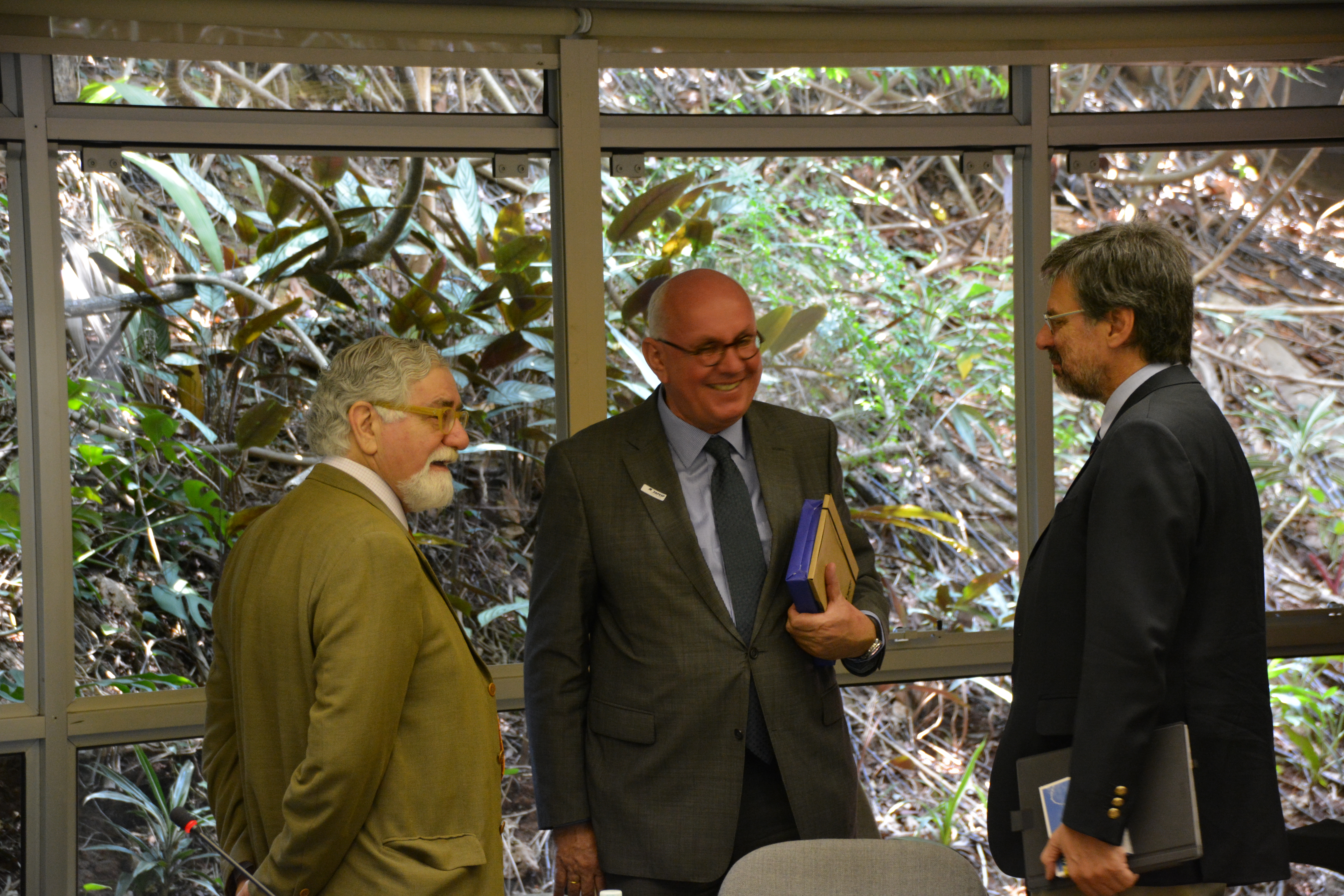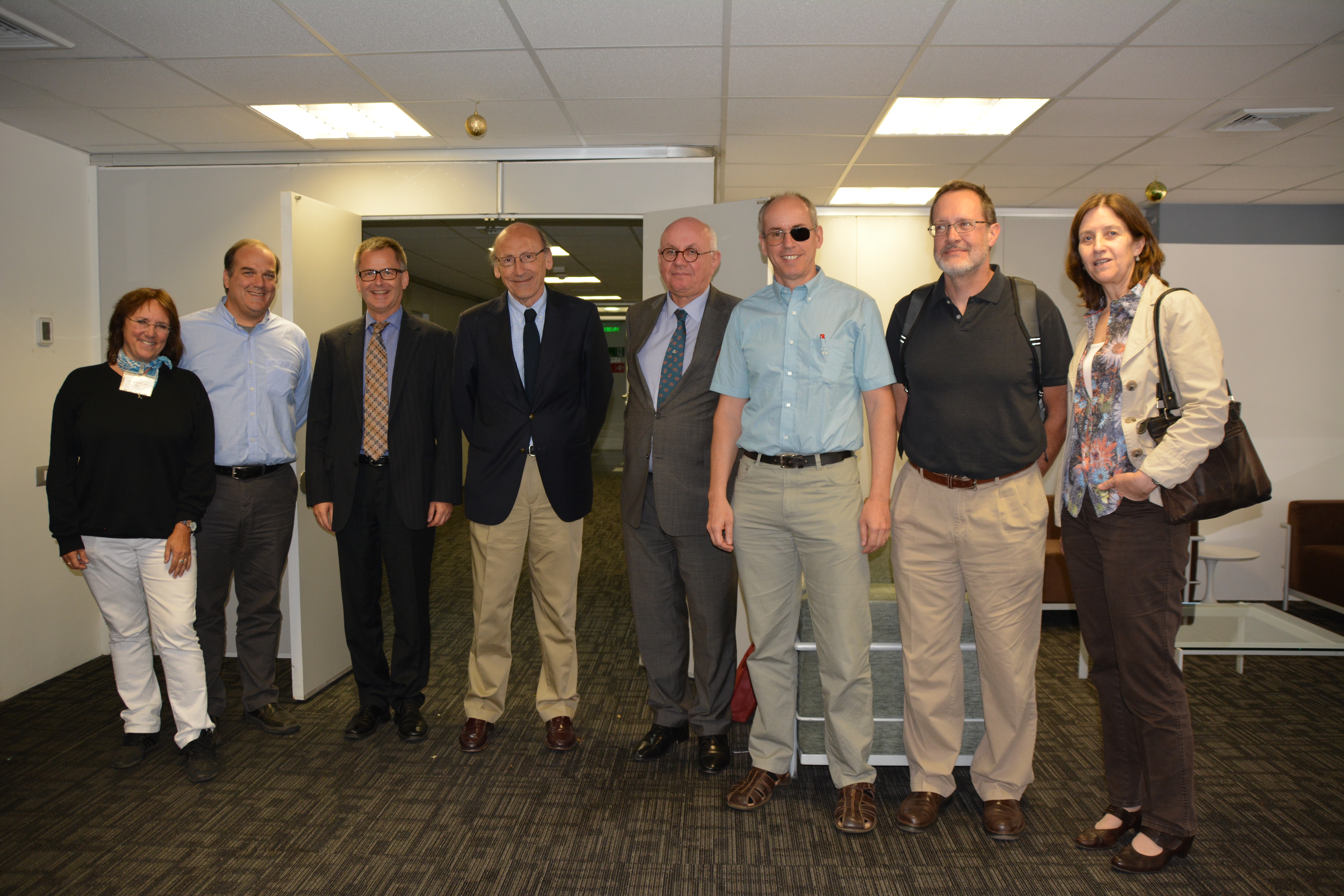DFG President Prof. Dr. Peter Strohschneider Visits Brazil and Chile
(02.02.15) Between 14 and 19 December, DFG President Prof. Dr. Peter Strohschneider paid a visit to Brazil and Chile. The main purpose of the trip was to meet with federal research funding organisations CAPES and CNPq in Brasília, the research funding organisations for the federal states of Rio de Janeiro and São Paulo, FAPERJ and FAPESP, and Chilean research funding organisation CONICYT in Santiago de Chile, as well as selected researchers from various universities and research institutes in both countries. The DFG has been involved in cooperation agreements with all these organisations for a number of years – in some cases decades – promoting joint research projects, workshops and visits.
The first item on the programme in Brasília was a meeting with DFG partner organisations CAPES and CNPq. The DFG and its partners discussed ways of furthering their collaboration through the possible joint funding of International Research Training Groups and research systems. This was followed by lunch at the German embassy, which provided an opportunity to discuss ideas further with additional participants.
In Rio de Janeiro the presidents of the DFG and FAPERJ met for the first time since the start of the collaboration in May 2014. Particular emphasis was given to the great interest of the research community in the possibility of collaboration between Germany and the federal state of Rio de Janeiro. In Rio a dinner was held with selected researchers from various universities and DFG-funded postdoctoral researchers based at the city's scientific institutions, providing an insight into existing collaborations between Germany and the state of Rio de Janeiro.

Prof. Strohschneider with FAPESP President Prof. Celso Lafer and Scientific Director Prof. Carlos Henrique de Brito Cruz
In Sao Paulo Prof. Strohschneider held an in-depth discussion with the president and the scientific director of FAPESP, Celso Lafer and Carlos Henrique de Brito Cruz, with a special focus on Brazilian and international research policy. At a reception given at the residence of the German Consulate General for Sao Paulo, Friedrich Däuble, Prof. Strohschneider also had the opportunity to learn more about the German-Brazilian research community in the federal state of Sao Paulo and the various collaborations that exist. Before travelling on to Chile the DFG President was given a guided tour of the German House for Research and Innovation Sao Paulo (DWIH), which was followed by lunch with members of the DWIH, giving him an insight into the work of German universities and funding organisations in Brazil.

Reception at CONICYT following the event (from left to right): Prof. Dr. Gudrun Kausel (DFG Liaison Scientist in Chile), Prof. Dr. Miguel Allende (Universidad de Chile), Dr. Dietrich Halm (Director of the DFG Office Latin America), Prof. Dr. Francisco Brieva (CONICYT President), Prof. Dr. Peter Strohschneider (DFG President), Prof. Dr. Felipe Barros (Centro de Estudios Científicos de Valdivia), Prof. Dr. Andreas Reisenegger (PUC Santiago) and Dr. Jani Brouwer (PUC Santiago)
In Santiago de Chile, after a first meeting between Peter Strohschneider and Francisco Brieva, the new president of the Chilean funding organisation CONICYT, there was a joint event entitled "DFG – CONICYT Research Cooperation: Status Quo and Perspectives". Strohschneider and Brieva each delivered an address on research systems and the challenges facing German-Chilean cooperation from the perspective of the two organisations. A selected group of researchers engaged in German-Chilean cooperation projects then presented their work. The trip to Latin America concluded with a visit to Valparaiso, where Prof. Strohschneider met with vice-rectors and selected researchers from three universities – Pontificia Universidad Catolica Valparaiso, Universidad Tecnica Federico Santa Maria and Universidad Valparaiso – to discuss both the positive aspects and the challenges of German-Chilean cooperation.